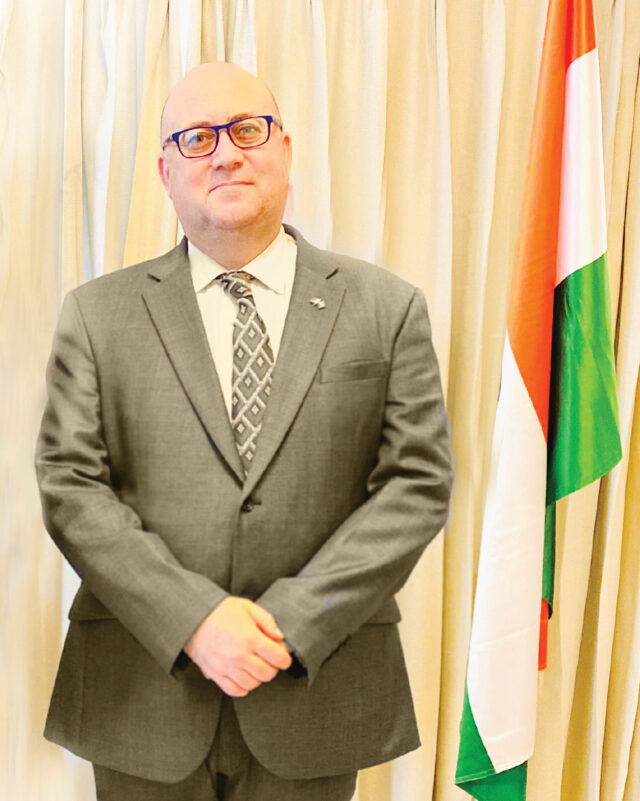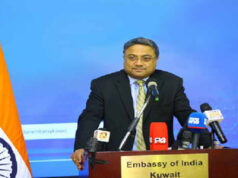Q. The bilateral trade between Malta and India has been steadily growing. Please share your views on it.
Ans- In September and October, India hosted a significant diplomatic visit from Malta. The Permanent Secretary of the Ministry for Foreign Affairs of Malta engaged in political consultations and took part in India’s national day celebrations. Shortly thereafter, the Foreign Minister of Malta met with India’s External Affairs Minister, Dr. S. Jaishankar, with a strong focus on discussions related to the economy and bilateral trade.
What makes these discussions particularly interesting is Malta’s unique governmental structure. The Ministry for Foreign Affairs of Malta oversees not only diplomacy but also trade, encompassing all foreign and European affairs. This integration means that trade falls under the purview of Malta’s Ministry, underscoring the importance of embassies and high commissions in fostering economic relations between the two nations.
The disparities in size between the two countries are significant, with Malta’s population of half a million in stark contrast to India’s 1.4 billion. For Malta, a nation with a total economic output of around 17 billion, the Indian economy, which measures in trillions, seems monumental. Nonetheless, trade between the two countries still holds substantial value, particularly in terms of imports and exports.
Recent developments highlight the expansion of this economic partnership. Malta has begun importing Maltese food products to India, including beer, a green energy drink, and a snack called “Twisties.” This is emblematic of an ongoing trend: many pharmaceutical companies in Malta, most of which are Indian-owned, import components from India to produce medicines. These medicines are then distributed throughout the European Union, showcasing the value of Indian investments in Malta.
Such investments may raise questions due to Malta’s small population. However, the strategic advantage becomes evident when considering access to the broader European market. Once products are manufactured in Malta, they gain entry not only to a population of 500,000 but to the entire European Union market, encompassing a staggering 450 million consumers. Indian raw materials and chemicals are shipped to Malta to facilitate this process, forming a significant part of the bilateral trade. Moreover, Indian businesses are finding a welcoming market in Malta. Maltese companies are importing a range of products from India, such as marble and mirrors, due to their excellent quality and competitive prices.
Overall, the diplomatic and economic ties between India and Malta are thriving. Despite the apparent size difference, both countries benefit from a symbiotic relationship that enhances trade and promotes economic cooperation. The story of Malta’s strategic positioning in Europe, fueled by Indian investments, demonstrates that economic opportunities are often about more than sheer numbers and populations; they’re about leveraging the right partnerships for mutual benefit.
Q. The Hon. Foreign Minister of Malta recently paid a visit to India. Can you shed some light on this?
Ans- On October 6th, 2023, a significant meeting took place between H.E. Dr. Ian Borg, the Minister of Foreign and European Affairs and Trade of the Republic of Malta to India, and India’s External Affairs Minister, Dr. S. Jaishankar. This constructive meeting transpired during a lunch held at the prestigious Hyderabad House. Minister Borg was accompanied by representatives from the Malta Financial Services Authority and Finance Network, indicating a strong emphasis on promoting financial services, a vital component of modern economies.
While the impact of financial services is not quantifiable in terms of traditional trade volumes, they play a crucial role in facilitating economic growth. Malta sees itself as a gateway for numerous countries and aims to enhance its role as a gateway for India by bolstering financial services. As an outcome of this meeting, the Maltese delegation responsible for financial matters is scheduled to visit Mumbai soon. Their agenda includes meetings with banks and financial services companies to further expand this sector.
Additionally, the ministers discussed political affairs during their bilateral meetings. Malta currently holds a non-permanent seat on the United Nations Security Council for 2023–2024. The Maltese side expressed appreciation for India’s recent role as a non-permanent member and looks forward to India becoming a non-permanent member of the UN Security Council. The International Solar Alliance was also on the agenda, with discussions centred around Malta’s potential membership and its growth prospects in this alliance. Finally, the ministers touched upon the intriguing India-Middle East Europe Economic Corridor (IMEC), which holds promise for fostering economic and geopolitical ties among the regions.
To read the full interview, please subscribe to Diplomacy and Beyond Plus.









